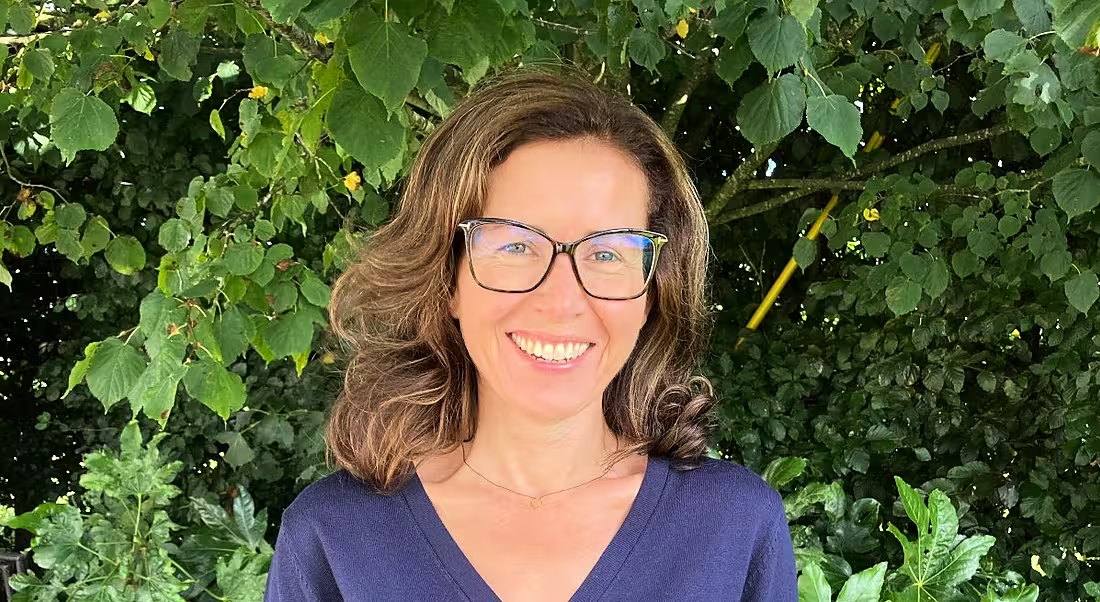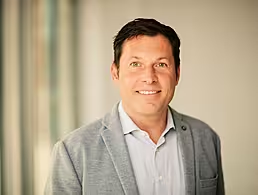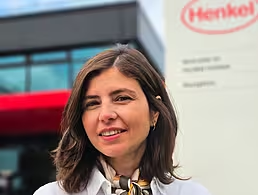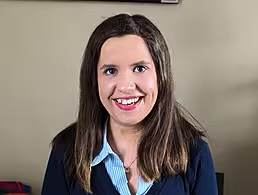After taking time away from her career, Henkel’s Noeleen Kennedy returned to work after eight years in a new area while working remotely.
One of the best parts of working in STEM is the variety of careers available. Even after choosing a certain path, the opportunities to move around within the industry can pave the way for a whole new career in STEM.
For Noeleen Kennedy, this meant moving from chemistry to product safety and regulatory affairs.
Having completed her PhD in chemistry and a research position in Trinity College Dublin, Kennedy took up a position as a chemist in Henkel in 2000, working on tissue adhesives for the wound closure market.
In 2012, she took a career break to look after her young family before deciding to return to the workforce in 2020.
It was then that she was drawn to the area of regulatory affairs. “It is such an essential component for product approval in the chemical, pharmaceutical and medical device sectors,” she told Siliconrepublic.com.
“I was really happy to have the opportunity to return to Henkel in this new role having been away for eight years.”
What’s the best thing about working in product safety and regulatory affairs?
The best thing I get from working in product safety and regulatory affairs is the exposure and interactions that I get to the different areas of the adhesive business. This includes working with a diverse group of people from different countries and departments, all collaborating for a common goal.
As a product safety and regulatory affairs (PSRA) specialist, part of my job is to assist product development departments with raw material and product assessments from a regulatory and product safety perspective. This can have an impact on supplier choice, product approvals, supply chain and product launches.
I am constantly learning and expanding my knowledge both from a product safety perspective and a wider business perspective. Also knowing that you can guide and advise both customers and colleagues in areas of product safety and regulatory compliance and influence decisions is hugely rewarding.
What’s the most exciting development you’ve witnessed in your sector since you started working in it?
I think the most exciting development is on the commitment to sustainability and making products that are a better fit for the environment, thus contributing to a more sustainable future.
What aspect of your job did you struggle to get to grips with?
As I started this position during the pandemic, I am working remotely. Therefore, 100pc of my training was conducted online, which at times was a little overwhelming. Despite having worked in the company previously as a development chemist, the area of product safety and regulatory affairs was completely new to me.
Initially, the IT systems and processes used to maintain the data required for products and raw materials and additionally the regulations guiding the chemical industry seemed vast and almost incomprehensible. It has been a huge learning curve for me but the hands-on experience has been great and there is still always something new to learn, which keeps the job interesting.
What’s been the hardest thing you’ve had to face in your career?
The hardest thing I had to face in my career was returning to work after an eight-year break. Added to this, I returned during the Covid-19 pandemic and, working 100pc from home, I still haven’t met many of my colleagues face to face. Hence working relationships have had to be established virtually.
However, as it has become the new norm, I have embraced it and it has been a great opportunity for learning and growth and also provided that extra flexibility in work-life balance.
If you had the power to change anything within the STEM sector, what would that be?
I think the only thing I would change is within the educational system, particularly at primary and secondary level. More emphasis needs to be put on science at primary level in order to evoke interest at a young age.
At secondary level, a move away from rote learning and more problem solving, critical thinking and practical experimentation needs to be an even larger part of the curriculum.
Which of your personality traits makes you best suited to your job and this sector?
I think my personality traits that help me in this job are my attention to detail, having a fact-based, analytical mindset and being self-motivated and organised.
Is there something in your personal life that has helped you in your job?
I think having the distraction of family, friends and outside interests allows me to switch off from my job and any stress at the end of the day, therefore allowing me to refocus with clarity the next working day.
How do you make connections with others in the STEM community?
I stay connected with people whom I attended college with and worked with in the past. LinkedIn is a great medium for connection as is social media where most STEM companies now have a presence.
Has mentorship or coaching been important in your career?
Mentorship and coaching have been essential elements to my career. Mentorship allows the most crucial elements of a jobs position to be shared and explained. It has established important working relationships for me and has given me a sense of engagement and confidence which is extremely important, particularly when starting out in a new career.
With my current position, mentoring has been of utmost importance to me as I work remotely and I have been very lucky to work with great people who are very willing to share their experiences and knowledge.
What advice would you give to someone thinking about a career in your area?
There are a diverse range of jobs and positions available within the STEM industry, so research them carefully if you are thinking of a STEM career and figure out where your interests really lie. There is always huge scope for retraining and changing jobs once you have a solid grounding in a STEM-related discipline or qualification, so variation is always possible.




